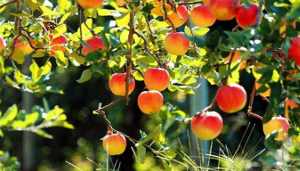Psalms: Introduction
Headings in the Psalms
Psalm 3
1
A psalm of David, when he ran away from the face of Absalom his son.
O Jehovah, how are my adversaries multiplied!
Many are rising up against me.
2Many are saying of my soul,
There is no salvation for him in God. Selah.
3But Thou, O Jehovah, art a shield for me;
My glory, and He who exalts my head.
4I call to Jehovah with my voice,
And He answers me from the mountain of His holiness. Selah.
5I lie down and sleep;
I awake; for Jehovah supports me.
6I will not fear myriads of people
Who have put themselves against me all around.
7Arise, O Jehovah;
Save me, O my God:
For Thou hast smitten all my enemies upon the jaw;
The teeth of the wicked Thou hast broken.
8Salvation belongs to Jehovah!
Thy blessing be upon Thy people. Selah.
Historical, musical, and topical headings in the psalms
Shiggaion4 of David, which he sang to Jehovah, on account of the words of Cush the Benjaminite (Ps. 7).
To the victor; of the servant of Jehovah, of David, who spoke to Jehovah the words of this song in the day that Jehovah rescued him from the palm of the hand of all his enemies and from the hand of Saul (Ps. 18).
A psalm; a song at the dedication of the house; of David (Ps. 30).
Of David, when he changed his behavior before Abimelech, and he drove him out, and he went (Ps. 34).
To the victor; a psalm of David, when Nathan the prophet came in to him, when he had gone in to Bathsheba (Ps. 51).
To the victor; a maskil5 of David, when Doeg the Edomite came and told Saul, and said to him, David has come to the house of Ahimelech (Ps. 52).
To the victor, upon neginoth6, a maskil of David, when the Ziphites came and said to Saul, Does not David hide himself with us? (Ps. 54)
To the victor, on jonath-elem-rechokim7 , a michtam8 of David, when the Philistines seized him in Gath (Ps. 56)
To the victor, al-tashcheth9; a michtam of David, when he ran away from the face of Saul into the cave (Ps. 57).
To the victor, al-tashcheth; a michtam of David, when Saul sent and they kept watch on the house to put him to death (Ps. 59).
To the victor, on a shushan10 of testimony, a michtam of David, to teach; when he quarreled with Aram-naharaim11, and with Aram-zobah12, and Joab returned and smote twelve thousand of Edom in the ravine of salt (Ps. 60).
A psalm of David, when he was in the wilderness of Judah (Ps. 63).
A maskil of David, when he was in the cave; a prayer (Ps. 142).
Musical notations in the psalms
AC 8337:5. As by correspondence all instruments signified the delights and pleasantnesses of spiritual and celestial affections, many of the Psalms of David have an inscription, and it is told how they are to be sung, as “upon neginoth,” “upon nechiloth,” “upon the octave,” “shigaion,” “gitthith,” “muth-labben,” “sheminith,” “shoshannim,” “machalath.”
4 A musical notation
5 “Maskil” means a type of psalm “giving intelligence.” See Ps. 47:4. Musical instruments (see AC 8337:5) that were strummed.
7 Probably a musical instrument (see AC 8337:5), the name of which literally means “a silent dove in far-off places.”
8 “Michtam” is a Hebrew word of uncertain meaning found in the headings of six psalms (16 and 56-60).
9 “Al-tashcheth” means “destroy not.”
10 A musical instrument (see AC 8337:5); “shushan” means “lily.”
11 A province called “Syria of the two rivers” (Tigris and Euphrates)
12 Another province of Syria
Questions and Comments
- What does it add to Psalm 3 to think of David praying this way as he fled from his son Absalom? Which verses especially reflect the heading?
- Can you imagine Jesus praying in the words of Psalm 3 when the hells were attacking Him?
- Can you imagine yourself praying in these words? Which verses especially?
- How many of the incidents mentioned in the headings do you recall from the stories of David in the first and second books of Samuel?
- The Heavenly Doctrine gives the spiritual meaning for the headings in the psalms. How do these references to the stories of David strengthen the psalms?
- Isn’t it cool to imagine the psalms being sung and played on various kinds of instruments to bring out various kinds of affections?
| previous |  |
next |
|---|


